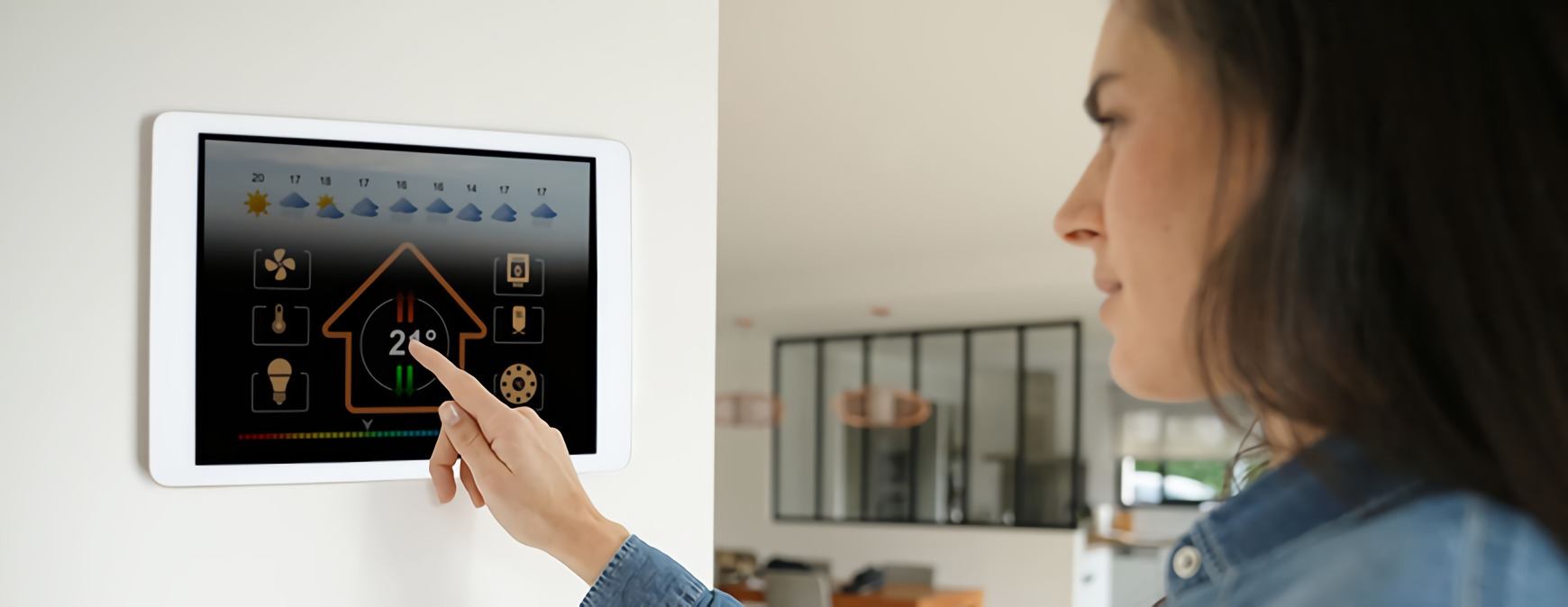
Having good customer service skills can be essential in the HVAC industry. As an HVAC technician, you regularly interact with customers, and your business relies on their satisfaction. Effectively communicating with a customer can also help you do your job better, such as when you try to pinpoint why an air conditioning unit isn’t working properly.
This is especially important because HVAC systems have become increasingly complex and digitized. More and more consumers are interested in outfitting their homes with smart technology, a development partly spurred by artificial intelligence assistants like Alexa or Siri.
Learn more about the vital role of customer service when selling and servicing smart HVAC equipment, as well as tips for communicating about these new technologies, in this article.
The Importance of Customer Service When Working with Smart HVAC
Smart HVAC technology has been making huge strides over the past few years. Smart thermostats, self-diagnostic capabilities or Wi-Fi-enabled controls have allowed for:
- Improved indoor comfort
- Lower energy bills and maintenance costs
- Better safety
- A smaller environmental impact1
But not every customer might be aware or really understand how these smart HVAC systems work. It is up to you, the professional with HVAC training, to explain these products to your customers to make sure that they are taking full advantage of this advanced technology.
Get Started on the Path to a New Career
Fill out our form to learn how we can help you change your life.
Build Trust and Authority with Customers
If consumers know how their smart systems work, they can enhance their longevity. Now, that may reduce the number of maintenance calls you get, but it can bolster the customer’s trust in you. Many customers will likely appreciate that you are helping them save money—and if they trust your professionalism and expertise, they will likely return time and again.2
Being a trustworthy “authority” on smart HVAC may also encourage customers to purchase new smart HVAC products from you, should you work for a business that sells HVAC equipment. Clear and patient communication can open up upselling opportunities if that is what your company is looking for.
Knowing how to communicate the ins and outs of smart HVAC products can improve your relationship with customers and make you a particularly attractive job candidate. Remember, job prospects are best for HVAC technicians who are comfortable with computer devices.3 Not to mention, employers value good customer service skills.4
7 Tips for Communicating about Smart HVAC Technology to Customers

We have compiled seven practical tips that should help you communicate with customers who may not be as tech-savvy during an HVAC service call.
1. Put Yourself in Their Shoes
You are an HVAC expert who deals with smart HVAC technology on a regular basis. Sometimes, professionals can forget that laymen and -women aren’t used to discussing these matters, which can lead to miscommunication.
Try to understand where your customer is coming from—whether they are unfamiliar with digital devices or have concerns about “Big Brother” listening in5—and meet them on their level.
2. Ask Them What They Want to Know
Some customers may have a specific question that they just don’t know how to articulate. Perhaps they are afraid of coming across as uneducated or maybe they don’t want to waste your time.
Make yourself seem approachable (and knowledgeable!) by directly asking them if there is anything specific they want to now. This can also speed up your troubleshooting process.
3. Give Them Relevant Information
Highly technical information is often more easily digestible if it is made personally relevant.
For example, smart thermostats have many advantages, but which ones are particularly important to your customers?
Do they have a big home with many rooms that need different temperature settings? Does the customer travel a lot for prolonged periods of time?
Such questions can help you explain the features of the device that could benefit them most.
4. Focus on Benefits, Not Features
A feature is just some inherent characteristic, while a benefit is a way this feature actually helps a person.6
If you want to talk to your customer about smart thermostats, you don’t need to explain how it is connected to both your smart device via the Wi-Fi network and the boiler via existing thermostat wiring.
Simply state that, for instance, if the customer is worried that they left the heating on at home while on vacation, they can quickly check on their app and turn it off if need be.7
5. Avoid Being Overly Technical
Similarly, know when to leave more arcane details out.
Going with our smart thermostat example, you don’t have to go into detail about how the Wi-Fi router transmits information put in via the smartphone app to the thermostat so it can send a signal to the boiler.
Don’t get lost in the technical details and make it more complicated. Stick with what is important and relevant to the customer’s HVAC needs.
6. Communicate on Their Level
This should go without saying, but don’t talk down to the customer. Assume that they are trying to understand what you are talking about and treat them with respect.
On the other hand, don’t talk over their head, either. If you use a lot of jargon or acronyms they are not familiar with, the customer may lose interest quickly. 6 Even worse, they might find your behavior irritating.
7. Confirm They Understood Your Explanation
Lastly, make sure that your explanation made sense to the customer. Double-check if they have any further questions or concerns. Stay patient if they do or if they ask you to explain again or differently.
Stand Out with Exceptional Customer Service
As an HVAC technician, your relationship with your customers can be the foundation of your business’s success. Communicating in an empathetic, precise and patient manner can make all the difference. The “Internet of Things” has made HVAC more complex, but if you take the time to address your customers’ concerns, you will likely be able to stand out among competitors.
Additional Sources
1 https://www.achrnews.com/blogs/16-guest-blog/post/140301-how-technology-is-changing-hvac-systems-for-the-better
2 https://www.gocanvas.com/content/blog/post/5-steps-to-better-customer-service-in-your-hvac-business/
3 https://www.bls.gov/ooh/installation-maintenance-and-repair/heating-air-conditioning-and-refrigeration-mechanics-and-installers.htm#tab-6
4 https://www.achrnews.com/articles/131340-customer-service-training-is-essential-for-hvac-technicians
5 https://www.achrnews.com/articles/140226-smart-hvac-contractors-sell-intelligence
6 https://www.techrepublic.com/blog/10-things/10-ways-to-explain-things-more-effectively/
7 https://www.justaskgemalto.com/us/how-do-smart-thermostats-work/
This blog has been labeled as archived as it may no longer contain the most up-to-date data. For a list of all current blog posts, please visit our blog homepage at https://www.rsi.edu/blog/

